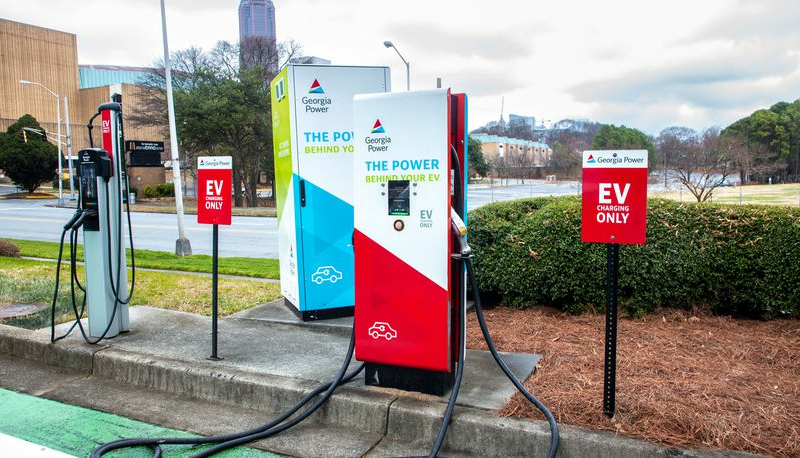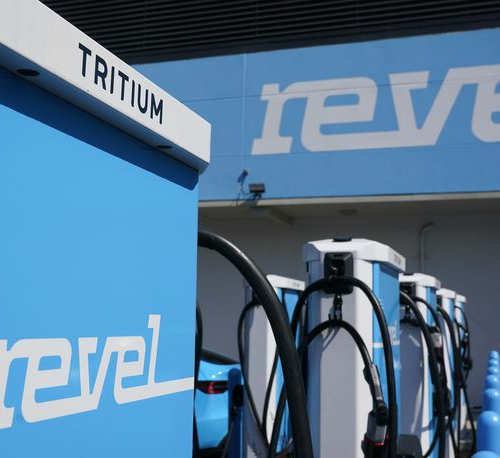By Andy Peters, The Atlanta Journal-Constitution
Troy Warren for CNT #Cars
Fear of competition from Georgia Power
When the tank is running low, motorists pull into a gas station or convenience store for a fill-up and maybe a coffee or a candy bar.
Store owners want to also sell the juice that makes electric vehicles go, and with 4,687 locations in Georgia they are positioned to do that. But they are hesitant to install expensive chargers, fearing Georgia Power will construct its own stations and have an unfair advantage in pricing the power and equipment. The owners’ hesitancy is leaving EV drivers with fewer options and slowing the national priority of spreading charging infrastructure.
“Competing with a monopoly is one of our biggest concerns,” Angela Holland, president of the Georgia Association of Convenience Stores, told a state House of Representatives committee Feb. 16.
Georgia Power denies it is in the business of owning charging stations, but the association is lobbying the General Assembly anyway to make the power provider pay the same rates they do for electricity. Members point to the National Electric Highway Coalition, which includes Georgia Power and the Tennessee Valley Authority, which said it will install charging stations and other infrastructure nationwide.
Two bills — House Bill 1322 and Senate Bill 492 —have been introduced to level the playing field. Both would require Georgia Power to create a subsidiary to operate charging stations that would buy electricity at the same rates paid by private businesses.
RaceTrac Petroleum, QuikTrip and others say they are willing to install thousands of EV chargers. A Bosch commercial EV charger costs $3,250. The stores also have to pay for installation and electrical upgrades.
Georgia Power also has the advantage of being able to charge its customers costs associated with upgrading its infrastructure, said Jay Smith, director of the Charge Ahead Partnership, which includes convenience stores and supermarkets.
“Gas stations can’t sell enough coffee to make up for that,” he said.
Stephanie Gossman, the electric transportation manager at Georgia Power, told the House committee that owning EV charging stations is not its business. But it operates 57 statewide.
Many of those are in rural and underserved areas, filling a void created by private EV companies that claim those areas are unprofitable, said spokesman John Kraft.
They’re located in areas “where there has historically been a lack of electric transportation investment,” he said.
Georgia Power also provides financial assistance to private companies to add stations, including convenience stores, he said.
Expanding EV infrastructure is critical during the transition of an industry that is also becoming a key economic driver for the state.
To help spur charging station growth, the Biden administration this month awarded Georgia $135 million, part of a $5 billion nationwide program.
Georgia has 3,639 publicly accessible chargers now, according to Washington research group Atlas Public Policy. To meet projected EV growth, that number in Georgia must rise to 17,700 by 2030.
Gov. Brian Kemp has made building the EV industry a top priority and touts the $5 billion Rivian EV plant east of Atlanta as the biggest economic development projects in state history. Another major economic coup is the construction of the $2.6 billion SK Battery America plant near Commerce, and smaller companies to supply the industry are also coming to or expanding in Georgia.
Industry tracker IHS Markit projects EVs in the U.S. will rise from 1.5 million vehicles to 9.3 million by 2026. It did not break out projections by state.


































